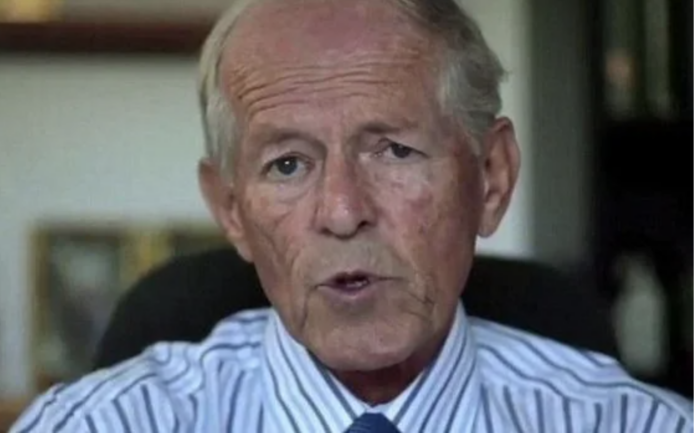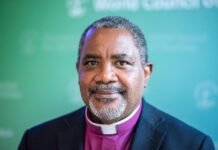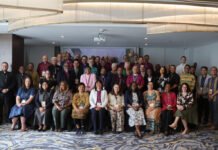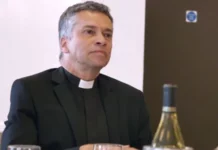The independent review by Keith Makin into the Church of England’s handling of allegations of serious abuse by the late John Smyth has been published.
The full review can be read here. Links to further information may be found below.
Keith Makin, who led the independent review, said:
“The abuse at the hands of John Smyth was prolific and abhorrent. Words cannot adequately describe the horror of what transpired.
“Many of the victims who took the brave decision to speak to us about what they experienced have carried this abuse silently for more than 40 years.
“Despite the efforts of some individuals to bring the abuse to the attention of authorities, the responses by the Church of England and others were wholly ineffective and amounted to a coverup.
“The Church and its associated organisations must learn from this review and implement robust safeguarding procedures across their organisations that are governed independently.
“This has been a long process but a necessary one to uncover the extent of John Smyth’s despicable behaviour and how the Church reacted to it.
“I would like to sincerely thank the victims for their courage, grace and dignity and I would like to remind everyone reporting on this review about their right to anonymity and privacy.”
The Church of England’s Lead Safeguarding Bishop, Joanne Grenfell, and the National Director of Safeguarding, Alexander Kubeyinje, said:
“We are deeply sorry for the horrific abuse inflicted by the late John Smyth and its lifelong effects, already spanning more than 40 years.
“The review concludes that Smyth is arguably the most prolific serial abuser to be associated with the Church of England. We know that no words can undo the damage done to people’s lives both by him and by the failure of individuals in the Church and other institutions to respond well. We are also aware that the time the review has taken, which the reviewer addresses, as well as the details now in the public domain have been retraumatising for survivors.
“We highlight the comment in the review from a deceased cleric (David Fletcher) who was aware in the 1980s, along with others, of the extent of the abuse: ‘I thought it would do the work of God immense damage if this were public’.
“We are appalled that any clergy person could believe that covering up abuse was justified in the name of the Gospel, which is about proclaiming Good News to the poor and healing the broken hearted. It was wrong for a seemingly privileged group from an elite background to decide that the needs of victims should be set aside, and that Smyth’s abuse should not therefore be brought to light.
“Every member of the Church is responsible for a culture in which victims are heard, responded to well, and put first: there is never a place for covering up abuse.
“We are aware of criticisms in the report of individuals and organisations and names of clergy were passed to the National Safeguarding Team, NST, from the reviewer (see below Terms of Reference).
“Of those who were interviewed 25 were questioned about their knowledge of Smyth and had their safeguarding risk assessed. The reviewer also had a duty to pass on information to statutory authorities including police if appropriate. Permissions to officiate were removed for some clergy while their actions were considered. Some seriously criticised in the report are deceased, others are not.
“The NST will now consider if there is any new evidence in the report that needs to be considered to assess if there is any ongoing safeguarding risk and if there is evidence to support any disciplinary process.
“The report also highlights Smyth’s abuse in Zimbabwe, where a boy died and many more were abused. It is clear that Smyth went abroad in the early 1980s following the discovery of his abuse here and in full knowledge of the church officers named in the report. The reviewer urges the Church to consider commissioning a report into Smyth’s actions both in Zimbabwe and South Africa.
“We will now seek to progress this in appropriate ways (noting the recommendation for international information sharing) and liaise with counterparts there who would need to lead on any subsequent investigation, which we would fully support.
“We also note the criticism of the Church’s response in 2013 and 2017. We apologise unreservedly that the needs of the victims were not at the forefront in terms of thinking and planning and the response was not trauma informed. We will continue to learn lessons about responding well which is reflected in our revised guidance and survivor engagement framework.
“We welcome all the recommendations and will consider them now in detail, noting work already underway. We wholeheartedly endorse the reviewer’s emphasis that safeguarding must be everyone’s responsibility in the Church, working closely with safeguarding professionals.”
The Archbishop of Canterbury has today issued a personal statement.




[…] Review by Keith Makin into Church’s handling of Smyth case – 7 November 2024- Anglican […]